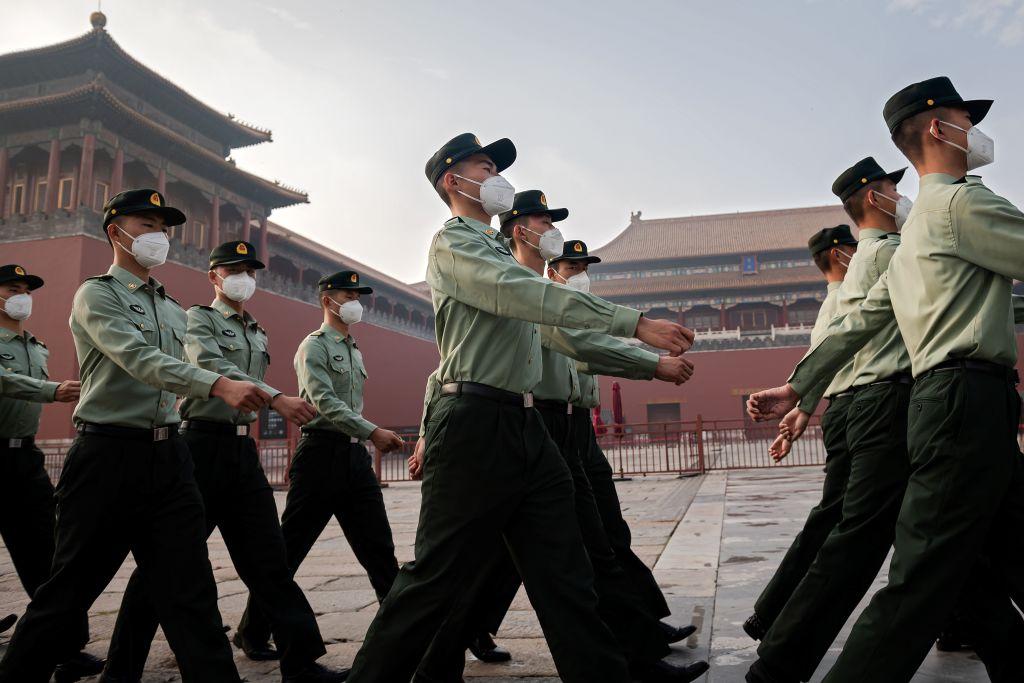Sen. Tom Cotton (R-Ark.) and Rep. Mike Gallagher (R-Wis.) applauded the Pentagon’s decision to issue a list of Chinese companies that are owned or controlled by the Chinese military.
Pentagon Lists 20 Chinese Companies as Backed by Chinese Military, Including Huawei

People's Liberation Army (PLA) soldiers march next to the entrance to the Forbidden City during the opening ceremony of the Chinese People's Political Consultative Conference (CPPCC) in Beijing on May 21, 2020. Nicolas Asfouri/AFP via Getty Images

Frank Fang
Reporter
|Updated:



